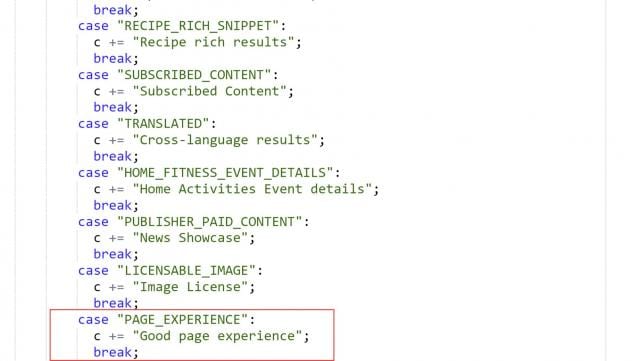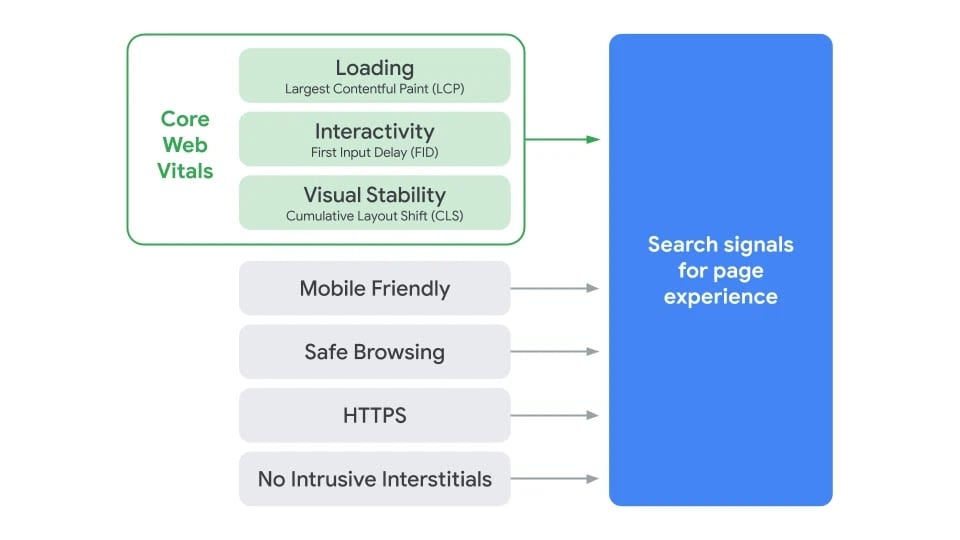Google’s Page Experience Update is Almost Here
You will know by now that your website needs to load fast.
You just need to Google it to remind yourself as to the many reasons why, so we will not do that again here.
In summary: happier users, better conversions rates and more conversions.
There’s no need to make it any more complicated because that’s all it is. Why else would you focus on it?
You don’t need another blog post about % of revenue loss for every % of extra second of load time. Zzzzzzzz. You’ve hit the snooze button on that a few times, so just turn off the alarm now.
Let’s look to the near future instead…
Great user experience
In May 2021 things will start to get very real when Google begin to label search results that have what they call a “great user experience”. They may begin testing this sooner, but that’s the official rollout date.
By ‘user experience’, we are not talking about UX in a traditional sense. We refer to ‘user experience’ in the way that Google defines it algorithmically – so, how fast and uninterrupted a web page is when loading.
In May, if yours is not up to scratch, then your click-through rates will decrease. There’s no question of that. It was probably already annoying users anyway.

This is the Google Page Experience Update.
An article on Search Engine Land last year said of this update: “Many SEOs expect it will be relatively minor.”
Well, let me tell you that this will not be ‘minor’. You can be damn sure of that.
The impact on rankings will be direct, since Google themselves have called this an “upcoming Search ranking change” and also there’s the potential indirect ranking loss suffered as a result of your competitors being labelled as a ‘great user experience’ when you are not.
It’s already there in the code within Google Search Console, if you know where to look:

Without investment, this is the beginning of the end for some websites. There are those that will, in a year or two, essentially end up on Google’s scrapheap as a result of this.
Something tangible
This very tangible thing, an actual visual signal in Google search results saying that your website is a “great user experience”, will be something that’s desired because it’s visual.
In-house marketers will have something tangible to tell their teams or agencies: “That’s what we want.” It will not be achievable in all cases, and if you do not have this label then your click-through rates (CTR) from search results may not suffer massively, but it will definitely be desirable.
What they won’t tell you is that this still remains slightly relative. If you are in a sector with just a few competitors then it may be okay at first to just have a faster web page than the others – but your end goal should still be to be fast by comparison to most others.
Before now, this discussion was usually held on the back of PageSpeed Insights scores (which are mostly bullsh*t and unreliable) and Lighthouse tests (a bit more detailed and sometimes useful, but not always accurate).
And then Google clearly stated that it’s the Core Web Vitals scores in Search Console that you need to pay most attention to, but many are still not listening.
Core Web Vitals are a set of real-world, user-centred metrics that quantify key aspects of the user experience. They measure dimensions of web usability such as load time, interactivity, and the stability of content as it loads. For example, you can probably remember more than one time when your thumb clicked on the wrong thing while a page was loading and aligning. Not great if you’re anywhere near a one-click purchase.

Actual Google Chrome users
The fact that these scores are based on actual Google Chrome users who visited your website should be all you need to know. The data comes from the Chrome User Experience Report and reflects actual usage data on your site from users around the world.
Well now, it’s Core Web Vitals that will help you to achieve this new label in search results. So it’s time to listen and stop running Page Speed tests on just your home page and sharing those results internally with a sigh of relief – they mean nothing now, they are just indicative at best.
Now here’s one of the toughest parts…
There are websites that use plugins and functionalities which are fundamental to how they have worked up until now. There are those that use page types and layouts that are heavy loading but they are what users have come to expect from that brand… websites like these may need a lot of work before they can achieve the status of being a ‘great user experience’ in Google’s eyes.
So if you haven’t begun to look at this now then you need to do so immediately. Some time, effort and investment will likely be needed.
Help your SEO
It is important to dispel the myth that better Page Speed scores instantly ‘help your SEO’. They can, but not always directly. Google is now looking for the complete user experience – great load times, strong click-through rates from search results, and strong engagement with the page itself.
To give an example: You can have a landing page that loads extremely quickly but if the content is sh*t and the user has no idea what to do next then they will bounce (leave your website) and your rankings will drop.
Google is not just a search engine, it is a suggestion engine. And they want to suggest websites that are not just fast but are also the perfect result for what the user searched for. They hate being wrong.
Fit for purpose
Don’t just take this time to focus only on Core Web Vitals and Page Speed. Take a fresh objective look at whether or not your website and core landing pages are even fit for purpose.
“Great page experiences enable people to get more done and engage more deeply,” Google say.
“In contrast, a bad page experience could stand in the way of a person being able to find valuable information on a page.
“By adding page experience to the hundreds of signals that Google considers when ranking search results, we aim to help people more easily access the information and web pages they’re looking for, and support site owners in providing an experience that users enjoy.”

None of this should be news to digital marketing professionals. Google has previously had known and established factors influencing its mobile-first index.
Up to now, those have been mobile-friendliness, safe browsing, HTTPS/HSTS, popups, interstitials, and more. Until now, it has been very much a focus on ‘mobile-friendly’ and ‘mobile-first’, but now it’s very much ‘mobile-fast’.
Next steps
You must revisit your website’s performance, security, and mobile-friendliness. These are already important, but they’ll become even more so.
You should also:
- Check that your hosting service is fast, reliable and responsive.
- Check that your website is not overstuffed with visual content (videos, images) that are going to make your site slow. Use a Content Delivery Network, if possible.
- If your website is not responsive and mobile-friendly by now, then you should be tearing it down to build it again.
- Ensure that you have the correct security measures in place. HTTS/HSTS… Google may even begin to check your site for a firewall.
- Avoid pop-up banners where possible. Nobody enjoys them. Cookie notices have already done enough damage.
- Run some manual tests for loading, interactivity, and visual stability. So, do your pages load fast and look right?
- Monitor Core Web Vitals data regularly.
As always, the most important next step is simple…
Get in touch with Friday Agency and let us show you what we can do.


